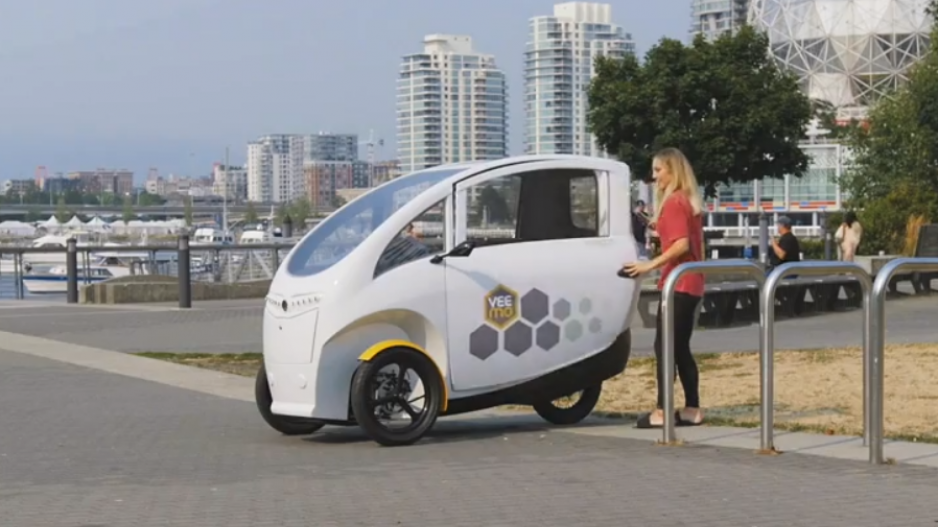Metro Vancouver e-mobility companies are consolidating with Burnaby's Envo Drive Systems buying Vancouver-based Veemo's assets out of bankruptcy.
Envo makes e-bikes, scooters, snow-bikes and water-bikes while Veemo’s core product was a covered electric tricycle.
Veemo's e-trikes are neither bikes nor cars, but they have characteristics of both. Veemo launched a vehicle-sharing service on the University of British Columbia campus in 2018.
The so-called "velomobiles" that it used in that venture were enclosed human-powered vehicles, which used pedal power and solar-panel-generated electricity to operate. The vehicles were regulated to travel at a top speed of 32 km per hour.
Envo founder and CEO Ali Kazemkhani told BIV this afternoon that Veemo had been readying to sell its e-tricycles commercially but had yet to achieve that goal.
Veemo (officially VeloMetro Mobility Inc.) filed an assignment in bankruptcy in January after the company said global supply-chain glitches hurt its business.
It noted on its website at the time that it was not able to say "say with confidence" that it could deliver vehicles to people who paid deposits.
Kazemkhani said that Envo paid "thousands" of dollars to Veemo's sole remaining creditor, Dale Brubacher-Cressman, after Brubacher-Cressman had bought out Veemo's smaller creditors. Part of the transaction also involves Envo paying Brubacher-Cressman royalty payments from future sales of Veemo e-tricycles.
All customers who paid $250 deposits for Veemo e-tricycles have been repaid, and they are encouraged to buy those vehicles from Envo, he said.
Envo's biggest selling products are urban commuter e-bikes that it sells through 120 dealership partners across Canada. Those bikes are designed in Burnaby, with parts manufactured in Asia and then assembled in Burnaby.
Envo leases a 10,000-square-foot showroom and office at 1685 Ingleton Avenue, and it has a separate 11,000 warehouse on Byrne Road, Kazemkhani said.
The company is profitable and has annual revenue of about $10 million, he added. Kazemkhani said his company has been "bootstrapped," and has achieved sales growth on average of about 80 per cent per year in each of its nine years in business.
He expects that growth to slow to about 25 per cent next year because the e-bike market was oversupplied with product during the pandemic. The number of companies making e-bikes has also ballooned, meaning that he has much more competition.
Despite this, Kazemkhani maintains a goal for Envo to have about $300 million in annual revenue by 2030, with growth powered by an increasingly diversified product offering.
He did not rule out making further acquisitions.
“The news about Velo Metro's bankruptcy wasn't good news for the industry or the planet, because the world needs products like this,” he previously said in a blog post on Envo’s website.
“We at Envo are confident we have solutions for the problems Veemo had been experiencing bringing the bike to market, and we plan to deliver this product to the market by next summer.”
Kazemkhani said Envo had for years been involved in a project to develop a product called Velo Mobile, which would be similar to what Veemo was developing.
“Veemo was well ahead and offered the best project in this field, thanks to the excellent teamwork among their top-of-the-line engineers, plus 10 years of experimental research and development,” he said.



